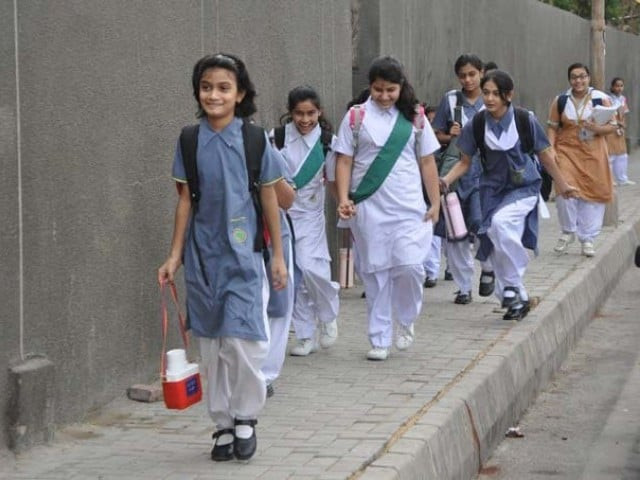Policy sought for private schools
Parliamentary panel suggests consultation with stakeholders

Claiming that many private schools defied government directions to cut fees by 20 per cent during the novel coronavirus (Covid-19) pandemic to provide relief to parents, a senate panel on Thursday considered consulting stakeholders to formulate a national policy for overseeing the fee structure and standard education in private schools.
This was decided as an Implementation Committee of the Senate met at the Parliament House on Thursday with Senator Dilawar Khan in the chair.
Dilawar said that the courts had directed private educational institutions in the country to reduce fees during the lockdown, imposed to curb the spread of the novel coronavirus (Covid-19) pandemic. The cut was imposed keeping in view the poor financial health of parents, many of whom had faced either pay cuts or furious and even layoffs.
However, Dilawar lamented that many private institutions defied these orders, causing parents to face tremendous difficulties.
The committee chairman said that different parliamentary committees had made several recommendations in this regard but almost all of them were ignored.
Schools to reopen in phases from 15th
He sought details of the action taken against private schools who defied orders of the Private Educational Institutions Regulatory Authority (PEIRA) in the federal capital. The authority was also asked to table a set of recommendations, if any, for amendments in legislation to strengthen their hold on private institutions.
At this PEIRA Chairperson Zia Batool told the committee that the government had directed private schools to cut their tuition fees by 20 per cent due to the lockdown. However, this only included private schools which charge Rs5,000 or more.
She added that the Supreme Court had ordered to take its verdict of 2017 as a benchmark for the cut. Recalling the verdict, she said that private schools are only liable to increase their fees by five per cent annually while they were entitled to receive only 50 per cent of their regular fees during the summer vacations and that too monthly, not in a lump sum.
The PEIRA official added that eight per cent of all schools registered with them charged exorbitant fees.
The committee was further told that during the lockdown, it had received some 700 complaints against schools who either failed to follow the government’s orders of maintaining the prescribed (standard operating procedures) or cut their fees. She asserted that action was taken on all the complaints.
Senator Shafique Tareen said that the exorbitant fees by private educational institutions have deprived children of middle-class families of education there. He expressed that the children of common people could also study in big schools if only institutions cut their fees to nominal levels.
Senator Tareen commented that the private sector has converted educational institutions into money-making factories.
Senator Dilawar suggested holding discussions with the federal and provincial education ministers and secretaries, officials from the law ministry, and the senate standing committee on federal education and professional training for making national policy on the fee structure of private schools and standard of education in them.
Balochistan package
The panel also reviewed the implementation of job quota percentages for Balochistan in different government institutions and departments under the Aghaz-e-Haqooq-e-Balochistan package. It summoned details of all employees in all public departments.
Senator Usman Khan Kakar said that as many as 15,783 seats were given to 83 different institutions for Balochistan. So far, only 10,527 seats have been filled while the remaining 5,257 seats are lying vacant.
He said that a six per cent job quota for the people of Balochistan has been unnoticeably merged in the special package even though the quota in the package was separate from the six per cent quota for Balochistan in different departments. He said that both should be dealt with separately.
Senator Kakar said that during the past few months, different ministers have published vacancies but few kept seats for people domiciled in Balochistan.
The official pointed out that the court had stayed appointments on 1,200 seats of the Levies Force in Balochistan for the past three years which was still effective.
The Establishment Division Secretary informed that they have issued orders to all departments and institutions to implement a quota for Balochistan
Published in The Express Tribune, October 2nd, 2020.



















COMMENTS
Comments are moderated and generally will be posted if they are on-topic and not abusive.
For more information, please see our Comments FAQ